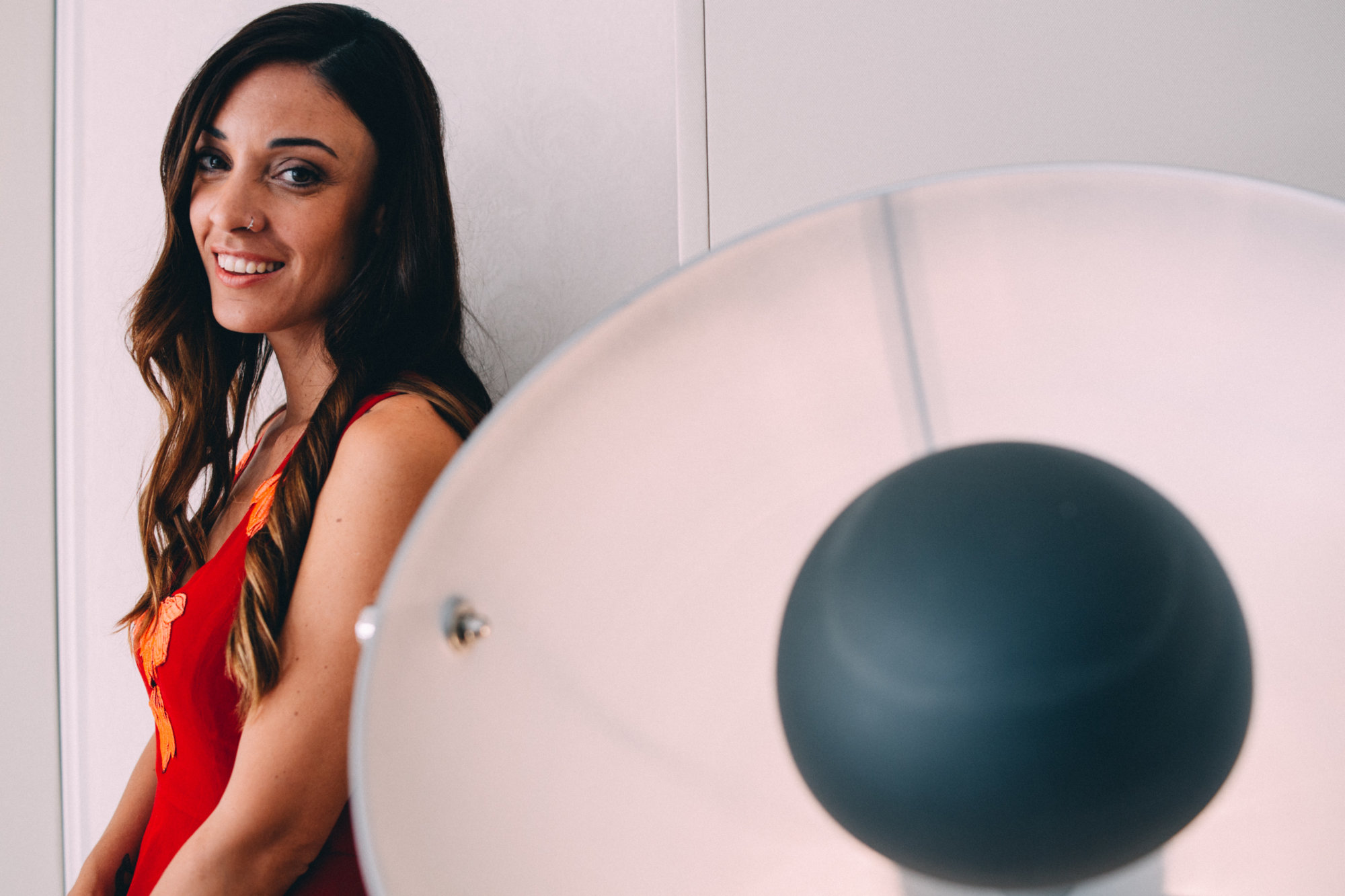“La Quietud” is a family drama presented during the latest International Venice Film Festival, directed by Argentinian director Pablo Trapero. It speaks of family, blood and forgiveness, but also about equality. What’s really remarkable about this movie is the depicture of the bond between the two sisters, portrayed respectively by Martina Gusmán (in the role of Mia) and Bérénice Bejo as Eugenia. In the beautiful landscape of the family estate, “La Quietud,” two very different sisters go through life, loss and rediscovery, until the much-unexpected end.
We chatted with Martina about her time in Venice, the role as Mia and her preparation for “La Quietud,” lived side by side with her sister-on-screen who became, also, a dear friend.


____________________
It’s clear that the lines between the two sisters are blurred: how did you approach the role? Was it more romantically or like two very close sisters?
____________________
It’s clearly more romantic.
It’s like the purest kind of love you could ever achieve and you could ever have. In this case, we have two sisters: we have this sensation of blood, of family, but they are a different kind of sisters and not every relationship is the same. It’s something that goes beyond the feeling of being sisters. Because it’s clear that they are in some kind of bond that is very symbiotic like they are two faces of the same woman.
With Bérénice, we worked very closely in a very short time: we were in Paris for two weeks and lived together, but then we worked a lot on the distant relationship, sending pictures, music of our childhood, recreating the childhood of the two characters to rebuilt in some ways the imaginary world of the other girl. Then she came to Argentina, we lived together in a house that is very similar to La Quietud, and we were together all the time. We had breakfast together, we went together to set, we had dinner together…
____________________
Like the sisters in the movie.
____________________
Exactly, like the sisters. We worked on this symbiosis and put it in service of the movie.

“Some kind of bond that is very symbiotic.“

____________________
Working on your character, did you take something from your personal experience?
____________________
Oh, thank God no, I didn’t! [laugh]
No, really, there are certain elements that I took – and Bérénice as well. Like the effect of the Military Regime on our lives and families. Bérénice’s family was exiled from Argentina because of the regime and my family was “militantes,” just like the family of Bérénice, but we chose to stay. That was very reckless, of course, because many of our family friends were Desaparecidos so I could, of course, have been the daughter of a Desaparecido. That was a miracle. So there was this thing about Mia’s character, that she always wants the truth to be known, that she wants to speak: it’s something I can find myself in.
Also, the relationships in “La Quietud” are stereotypical, they are like an archetype. For example, the mother is very bad: there is something universal about these interpersonal bonds. And we can realize that the film is about these relationships, from the relationship with the mother to the one with the sister and the father.
This feeling that she needs to be loved, to be recognized, and this is something we all have been through. Of course, here I can put something personal, but not because I have this kind of relationships or because I look for my relationships in there, like motherhood or the need to be loved or all these fears, the themes that are seen through the movie and they compose the universe of the film.
There wasn’t a particular universe in which the character could’ve been placed: in “Leonera” there was the world of prison, in “Carancho” there was America, here we enter the world of emotions. So the feelings are mine, but I put them at the service of the character.
____________________
The male characters look almost negative.
How did you work on the “negative” aspect of the male characters?
____________________
I don’t know if it’s actually a negative aspect. The male characters are objects between the girls, they are functional to them, but I don’t know if that’s negative. For them it’s positive.
The character of Vincent is what allows them to minimize this desire they feel for each other in order not to commit incest. That’s his role. Or Esteban: he allows Eugenia to bear the fact that her sister is sleeping with her husband because she too has another man. Or her father, who is the only one who really loves Mia. I don’t know if they have a negative side apart from the fact that they are manipulated and used by these women because it’s clearly a film that talks about the feminine world, as opposed from the concept of “El Clan” from the previous movie, which was a male world.
In this case, it’s all about the female universe.

____________________
And, of course, it’s a movie that empowers women and it’s a peculiar moment to show this, with the “Time’s Up” movement. What do you think that this movie can bring to women?
____________________
I believe that Pablo is good at showing the female world, especially with the empowering. It’s very brave, as well; also in the way he shows sexuality. You can really see Pablo’s point of view. In this scene when the two sisters masturbate, in the subconscious of the society, of everyone, one could think of this scene with men, but with women is something much more of a taboo. If I say, “can you imagine two men, friends or brothers, in this situation, as they masturbate?” people would say “I didn’t see it in a movie but I can definitely see it.”
With women is something much more upsetting, because it’s more of a taboo. I think that the film begins with this kind of base, saying, “you see, we really are equal.” And this upset and provokes. I think this is the point of view it starts from, it’s a film that talks of abort, of different kinds of families, so I think that it’s a film that speaks about female empowerment and it’s something more visceral for Pablo, something more instinctive.
We really are equal.

____________________
What’s the secret recipe for the Latin-American cinema industry?
____________________
I don’t know if there is a secret! [laughs]
I believe there is something that characterizes this industry, but I don’t know if one can speak of Latin-America Cinema in general, because I think that we are very different: the cinema from Argentina has nothing to do with the Mexican or Brasilian ones. But in the Argentinian cinema, which is really going well, I think it has to do with their being different, with the diversity of styles: there are many movies all different from each other, because of thematic as and style, but with this common thread that is really particular, really Argentinian.
At the same time, there is something more universal and with interesting proposals to offer as a matter of technical and artistic quality.
I believe this kind of combination is something that may stand as something particular and eye-catching, but I don’t think I can push everything into a single slot, as “the Latin-American cinema.”
At the Venice Film Festival, we have three films from Argentina that are very different. “Mi Obra Maestra” is a comedy; “Acusada” is an “Opera Prima ” that is socially involved, a thriller, and this one, which is a drama with black humor. They are very different but each of them has this common thread, which is very strong.


____________________
What’s your happy place?
____________________
“La Quietud.” [laughs]
I have a house on the seaside, in Argentina, and I think that is my happy place.
____________________
One epic fail on the job?
____________________
Well, I did one Spanish comedy that I didn’t like at all…I mean, I also had fun, it wasn’t a complete disaster, but it wasn’t what I liked the most.
Photos by @Johnnycarrano.





